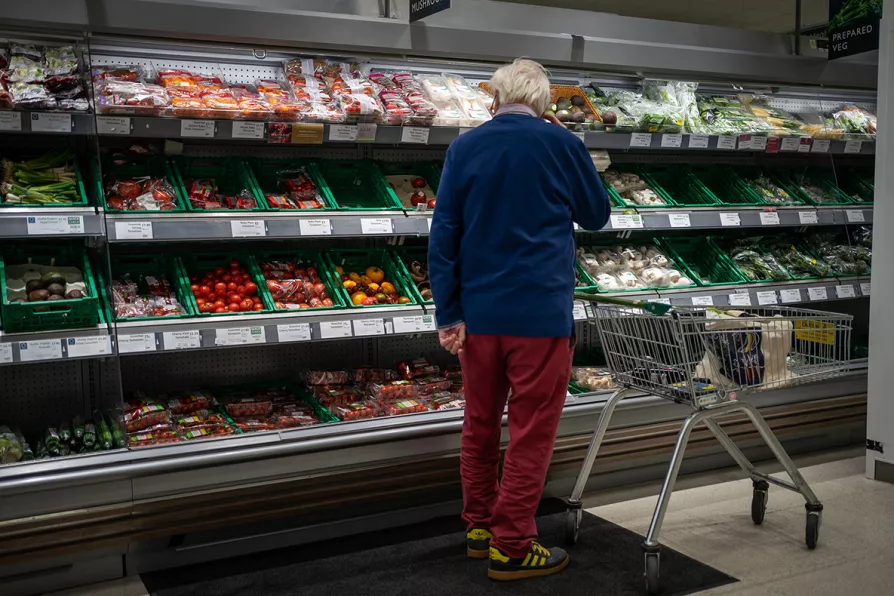Poorest households hit hardest as budget groceries see sharpest rises

 A shopper looks at salad vegetables in a branch of Waitrose in south London, October 15, 2021
A shopper looks at salad vegetables in a branch of Waitrose in south London, October 15, 2021
NEW research confirmed today that the nation’s poorest have been hit hardest by inflation, as prices for the cheapest groceries have surged much more than those of premium brands.
The Institute for Fiscal Studies found that between 2021 and 2023, inflation disproportionately targeted cheaper products.
Poorer households paid 29.1 per cent more for food, compared to 23.5 per cent for wealthier households.
More from this author
![A man waves a Palestinian flag as the Thousand Madleens ship sets sail for Gaza [Pic: Antonio Vasquez]]( https://msd11.gn.apc.org/sites/default/files/styles/low_resolution/public/2025-10/thousandmadleen-14-Antonio-Vasquez%C2%A9-Antonio-Vasquez.jpg.webp?itok=vNZyiduE)
Families call on Foreign Office to secure the release of their loved ones

Jewish campaigners condemn Starmer’s claim that demonstrations against genocide are 'un-British'
















